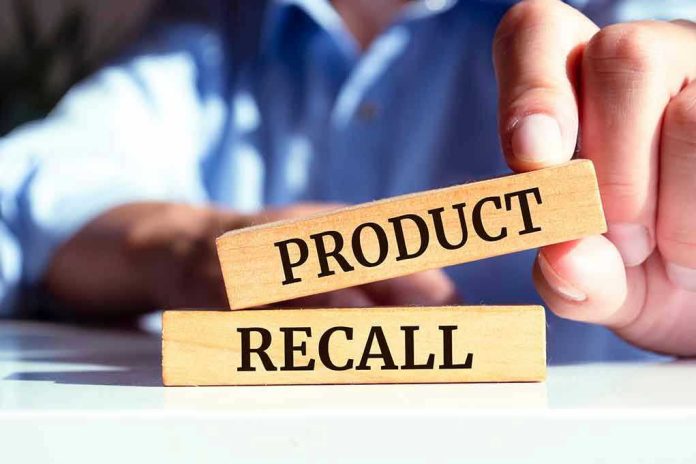
Radioactive contamination was found in imported shrimp from Indonesia, raising urgent questions about food safety and the effectiveness of U.S. border controls.
Story Snapshot
- U.S. authorities detected cesium-137, a radioactive isotope, in frozen shrimp imports from Indonesia before products reached the marketplace.
- The FDA issued recalls and advisories for multiple brands, including Walmart’s Great Value, despite contamination levels being far below intervention thresholds.
- All contaminated shipments were stopped at the border, highlighting the importance of robust import screening.
- Ongoing FDA investigations and new import alerts signal heightened scrutiny of imported seafood and concerns about supply chain integrity.
Radioactive Contamination Detected in Imported Shrimp
In August 2025, U.S. Customs and Border Protection identified the radioactive isotope cesium-137 in containers of frozen shrimp shipped from Indonesia and processed by PT. Bahari Makmur Sejati. The Food and Drug Administration confirmed contamination in at least one breaded shrimp sample, affecting major retail brands such as Walmart’s Great Value. The presence of radioactive material in food products is a rare but serious concern, typically linked to industrial or environmental incidents rather than foodborne pathogens or chemical residues.
Despite the detection, the FDA reported that radiation levels were more than 17 times lower than the agency’s intervention limit. No contaminated shrimp entered the U.S. market, as all affected shipments were denied entry at major ports, including Los Angeles, Houston, Savannah, and Miami. The FDA acted swiftly: by August 29, multiple brands had been recalled, and PT. Bahari Makmur Sejati was placed on a new import alert for chemical contamination. Public advisories urged consumers not to eat, sell, or serve the affected shrimp, and distributors moved quickly to pull products from shelves.
U.S. Regulatory Response and Stakeholder Impact
Key federal agencies, including the FDA and CBP, coordinated closely to manage the incident and safeguard the food supply. Their prompt action prevented potentially hazardous products from entering American homes and markets. Distributors and major retailers such as Walmart and Kroger, whose brands were affected, faced immediate reputational and financial impacts. The incident disrupted supply chains, especially in states with high consumption of imported seafood, and triggered a wave of consumer concern over whether current regulations are sufficient to keep dangerous imports out of the country.
PT. Bahari Makmur Sejati, the Indonesian processor, now faces not only U.S. regulatory scrutiny but also possible consequences from Indonesian authorities and global buyers. This event underscores the interconnectedness of international food supply chains and the critical need for rigorous oversight by both exporting and importing nations. For American distributors, executing rapid recalls and communicating transparently with consumers became a top priority to restore trust and minimize potential fallout.
Broader Food Safety, Economic, and Policy Implications
The detection of cesium-137, even at low levels, has immediate and long-term implications. In the short term, supply chains for affected brands are disrupted, and consumer confidence in imported seafood is shaken. Longer-term, this incident may drive stricter import controls and enhanced screening for radioactive contamination, potentially affecting trade relationships and regulatory standards. Economic losses are likely for both U.S. distributors and Indonesian exporters, while the incident could trigger regulatory reforms and increased vigilance across the global seafood industry.
Are you still eating imported seafood? What is it going to take?
FDA Expands Warning of Radioactive Shrimp as Two More Brands Recalledhttps://t.co/aHQJsiqe2j
— Amber Lake Farm(stead) 🕊️ (@AmberLakeFarm) September 22, 2025
Industry and food safety experts emphasize that, while the levels detected posed no acute risk to consumers, the rarity of such contamination highlights vulnerabilities in the global food system. Some consumer advocates are calling for even stricter controls and greater transparency in the supply chain, while industry representatives caution against unnecessary panic. The consensus among experts is that U.S. import screening worked as designed, but the event will likely fuel debate over how to further strengthen food safety and protect American consumers from foreign threats—deliberate or accidental—to the food supply.
Sources:
No small matter: Cs-137 contaminating shrimp (Nuclear News)
FDA advises public not to eat, sell, or serve certain imported frozen shrimp from Indonesian firm




